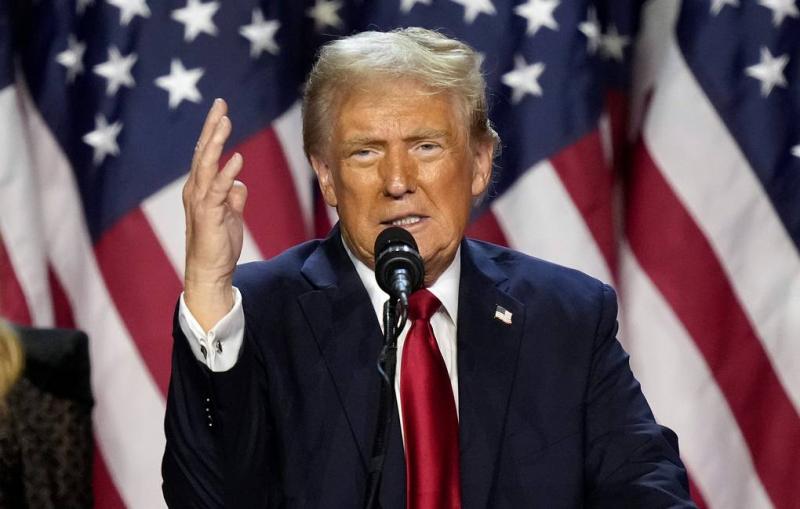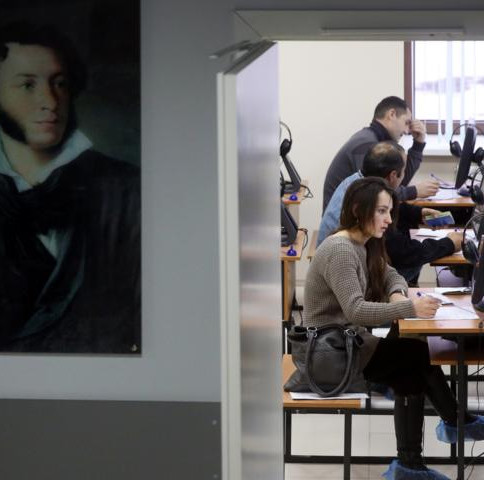
The President-elect of the United States has appointed House member Mike Waltz (R-FL) his National Security Assistant. News anchor and military veteran Pete Hegseth is proposed for Pentagon chief. Trump is convinced that in his new position he will " boldly and patriotically defend the US policy of peace through strength." And still, appointment of a TV host as Defense Minister must be causing great confusion among the American military.
Former Director of National Intelligence John Ratcliffe, as already announced, will head the CIA. As noted in Trump's statement, Ratcliffe "exposed the lies" of Hillary Clinton's election campaign about "Russian interference" in the 2016 presidential election, and also "told the truth to American citizens" about the scandalous data discovered by the FBI in the laptop of incumbent President’s son Hunter Biden.
Also, Trump will appoint South Dakota Governor Kristi Noem as Secretary of Homeland Security. The President-elect has noted that he looks forward to close cooperation between Ms. Noem and Thomas Hoffman, who will be in charge of border security and deportation of illegals.
Experts note that the last thing Trump proceeds from is the competence of those appointed. His key criterion is loyalty of the appointees to him personally. It does make sense. Trump wants to avoid situations where someone of the nominees says one day that he/she does not endorse the president's policy. The idea is confirmed by the fact that Trump has come to replace current CIA chief William Burns, a professional diplomat and spy, whose work has been deemed as truly effective in relevant circles. As already mentioned, Trump chose John Radcliffe as he had previously demonstrated loyalty to the president-elect.
But the main expected though not yet announced appointment concerns the post of Secretary of State. Senator Marco Rubio is expected to be the one, The Washington Post claims.
Rubio and Waltz are expected to work on ending the conflict in Ukraine and separating European NATO allies from the American "pork barrel". These Florida politicians’ foreign policy views are tougher than Trump’s, who publicly advocates "bringing peace to a war-torn planet." But despite their long-standing reputation as "hawks," both Rubio and Waltz are close to Trump on a number of crucial issues, especially the war in Ukraine, which, as The Washington Post notes, is becoming less popular among the Republicans as it turns into "an expensive war of attrition."
Marco Rubio is known to have also been supportive of Trump's stance on reducing costs on European defense. Trump is surely going to apply his well-known accountant approach to the Old World, allowing the United States save billions of dollars and shift the financial burden of ensuring the security of its European NATO allies onto themselves.
Rubio, the son of Cuban immigrants, is known for having built his political career on supporting the overthrow of "authoritarian governments from Latin America to the Middle East and Asia." He is vice chairman of the Senate Intelligence Committee and one of those whom Trump considered as his running mate before settling on Senator J.D. Vance, who is now vice president-elect.
With a background of Cuban immigrants in Florida, Rubio is especially known for his extremely hostile attitude towards the Governments of Cuba, Nicaragua, and Venezuela. He has repeatedly initiated and co-authored tough laws passed by Congress against the three countries, and opposed any relevant sanctions relief.
As for Waltz, he is a retired special forces officer, who used to work for VP Dick Cheney (in the George W. Bush administration). He is one of the Congress’s most virulent critics of China and has previously advocated for an indefinite US military presence in Afghanistan. Waltz served with a number of key national security committees in the House of Representatives, being a hawk to the marrow of his bones.
And these two hard-liners will allegedly have to sort out problems that the Biden administration has created for its own country in Ukraine by dragging the United States into a seemingly endless waste of budget money.
With these key players in his administration, Trump will definitely take a course to end the conflict in Ukraine and, most likely, place a financial burden on Europe to secure its own defense. While this prospect is relatively clear, the Ukrainian issue is framed by many details and nuances, some of which lie, oddly enough, in US relations with its Latin American neighbors.
If you believe The Washington Post about Rubio's future appointment, it indicates that Trump is willing to proceed with or even tighten his approach towards official Havana, Caracas, and Managua. Marco Rubio was raised to hate the communist government of Cuba. And he does not need to be persuaded to come up with another dirty trick for that country, as well as for other Russian allies in the region.
One may assume that Russia's Latin American allies can be used by the new US administration as a sort of hostages in future bargaining with Moscow as regards the terms of a peace deal for Ukraine. Theoretically, Trump's planned increase in financial, economic and political pressure on Cuba, Venezuela, and Nicaragua may determine the Kremlin’s response to his certain future "peace proposals". In exchange, Trump may well offer to remove the threat from Russia's Latin American friends.
All of Trump's rhetoric about commitment to establishing peace worldwide is nothing but a mere election slogan. In Russia, for example, no one takes his statements seriously when he talks about "bringing Putin to the table." And Trump is perfectly aware of this himself. But his intent not to be reputed as a trash-talker may push Trump to extraordinary foreign policy steps in a bid to find levers of pressure on Moscow. It is highly likely that Vladimir Putin's global popularity and clout have been haunting him all the while.
It is quite obvious that the president-elect sets himself the task of showing that he is "cooler" than the Russian leader and can dictate terms to him.
At the same time, do not forget that Americans are fans of provocations and test balloons that they throw into the information space in order to assess the reaction of both their friends and opponents. Just the other day, The Wall Street Journal (WSJ) wrote that some of Trump's closest advisers, with their names not disclosed, were conferring on a peaceful end to the war in Ukraine, while casually naming those relevant, particularly former US Ambassador in Germany and "Trump's favorite diplomat" Richard Grenell, who, as WSJ noted, is also tipped for the port of State Secretary.
All this stove-piping and appointments make clear that Trump wants to actually deal with the Ukrainian crisis. The question is that his interests and Moscow's publicly stated goals will most likely not coincide. The exquisite workmanship of diplomats, experts, intelligence, propaganda is ahead… Trump wants to do it beautifully, for the sake of his own precious self and in order to come up with the president of Russia in global popularity. He does not need anything like Biden’s sad experience of a disgraceful military withdrawal from Afghanistan, but he does not know how to achieve it yet.









